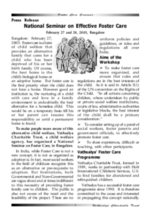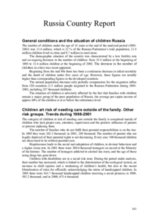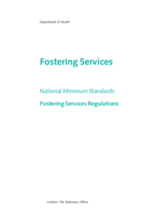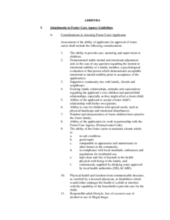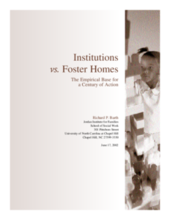Displaying 2121 - 2130 of 2168
An overview of the largest longitudinal investigation of institutionalized children less than 2 years old ever conducted.
Overview of a research study which provides guidelines for care of separated children in large-scale emergencies, focusing on the negative impact of residential care, extended family care, spontaneous and agency fostering, adoption, and alternative placements for adolescents.
Explores temporary foster care as an alternative to institutionalization in India. Emphasis on analyzing and reforming guidelines for foster care.
Country report of Russia on the situation of children in residential care in anticipation of the Second International Conference on Children and Residential Care: New Strategies for a New Millennium, to be held in Stockholm 12 – 15 May 2003.
Guidelines and criteria for establishing and monitoring alternative care arrangements including emergency transit booth care (ETBC), foster care, and independent living for separated Liberian refugee children in Sierra Leone.
A set of standards for the delivery of a national fostering service. It includes standards for the management of the service, the delivery of care, reunification with birth families, and working with caregivers.
This paper outlines the response of Save the Children to the civil war outbreak in Liberia. Using the concept of child participation, the organization was able to address the needs of the children, which included family tracing and reunification, child protection and education.
Brief guidelines on assessing and training foster carers, and supporting children in foster care placements.
A review of institutional care and family-centered care with a discussion of both positive and negative aspects of group care. This review paper is primarily focused on showing the inefficacy of group care and recommending other forms of care such as kinship care and even foster care as options that are more cost effective and better for children’s development.
This article, a chapter from the book Family Foster Care in the Next Century, describes several innovative types of shared family care arrangements that demonstrate promise in the protection of children and the promotion of family well-being.



